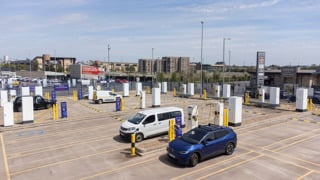By Paul Hollick, chair of the Association of Fleet Professionals (AFP)
The 0% benefit-in-kind (BIK) tax rate, the announcement of a whole range of new models and the growth of charging infrastructure across the country all mean that 2020 has long looked set to mark a momentous tipping point for EV adoption
by UK fleets.
It’s viewed by many – including the Association of Fleet Professionals (AFP) – as a moment of innovation and excitement. So, it is a little frustrating to report that we’re currently encountering a few bumps in the road that are slowing progress. There is no fault to be ascribed to this situation – and many of the problems which our EV, Low Carbon and Alternative Fuels Committee are discussing have, of course, unavoidably been caused by the impact of the coronavirus crisis.
The biggest hurdle is availability of key vehicles. While more expensive, established EVs can be acquired relatively easily, newer models suitable for mainstream company car use and which are likely to power mass fleet acceptance are often in short supply. Much of this is due to factories either getting back to capacity in the wake of the pandemic or ramping up to meet buoyant global demand, a situation that probably also accounts for some EV-specific parts, including tyres, being tricky to obtain.
The situation is more acute for the EV light commercial vehicles now coming to market. These are around in even smaller numbers than EV cars as most of the 2020 allocation has been taken by mega-fleets who committed to buy in 2019, with smaller buyers facing lengthy waiting times.
Elsewhere, there are some structural issues from the tax authorities to tackle. The 4ppm AER (Advisory Electricity Rate) is clearly not fit for purpose with some EVs costing much more than this to operate and fleets need to work out new ways of properly reimbursing employees.
For the future, it would be good to see some certainty around future BIK rates post-2024/25. Some of the EVs on order now will certainly be taxed in those years and a degree of informed planning on the parts of fleets and employees is highly desirable.
Finally, while the Government obviously has some very important matters on its plate today, it would be good to start having dialogue, to us already overdue, about what kind of fundamental changes we might see regarding the taxation of company vehicle private use.
It’s important to put all this into context. None of these issues is insurmountable, especially bearing in mind that we have all seen genuine tragedies unfold in the past few months. However, they do mean that the tipping point that we envisaged in 2020 might be delayed a little. It is a measure of the overwhelming enthusiasm that we are seeing for EVs in the fleet sector that it does feel as though Christmas has been put back a week.



















Login to comment
Comments
No comments have been made yet.